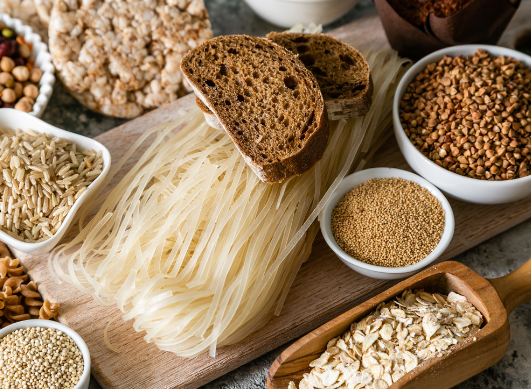- Home
- Share
- Forum
- General forums
- News from the media
- Mixing herbal remedies and conventional drugs 'could be harmful'
Mixing herbal remedies and conventional drugs 'could be harmful'
- 12 views
- 0 support
- 2 comments
All comments
![]()
Tazzbar
Good advisor
![]()
Tazzbar
Last activity on 08/09/2020 at 10:46
Joined in 2014
27 comments posted | 2 in the News from the media group
1 of their responses was helpful to members
Rewards
-
Good Advisor
-
Contributor
-
Explorer
-
Evaluator
i recently informed my GP that i had started taking Turmeric and leaving off my omeprazole on days when i took it, he just said does it help. I said it doesn,t kill the pain as good as the etorocoxib but since he only gives me 14 of them a month { my previous consultant recommended 1 per day and i had no side effects} i had to try something . The fact that i need the omeprazole to prevent my angina pectoris did get him to any discussion . Just said ok. Needless to say I was not encouraged to question him so will see a different Dr next time
See the signature
B Tazzini

lesmal
AmbassadorGood advisor
![]()
lesmal
Ambassador
Last activity on 04/04/2025 at 11:06
Joined in 2018
1,452 comments posted | 50 in the News from the media group
67 of their responses were helpful to members
Rewards
-
Good Advisor
-
Contributor
-
Messenger
-
Committed
-
Explorer
-
Evaluator
I don't believe in mixing herbal remedies with conventional drugs.
I have had epilepsy now for 44 years and been on the same medication for over 20 years... If one mixes then one must expect the side effects that comes with it.
I also don't believe in taking generic medication; it must be original.
See the signature
Les
Give your opinion
Survey
Articles to discover...

14/03/2025 | Nutrition
Carbohydrates: Friend or foe? Everything you need to know to make the right choices!
Subscribe
You wish to be notified of new comments
Your subscription has been taken into account







Margarita_k
Community managerGood advisor
Margarita_k
Community manager
Last activity on 07/10/2020 at 11:39
Joined in 2016
1,195 comments posted | 154 in the News from the media group
1 of their responses was helpful to members
Rewards
Good Advisor
Contributor
Messenger
Committed
Explorer
Evaluator
Herbal remedies such as St John’s wort, ginseng and ginkgo biloba could have harmful interactions with conventional drugs, scientists have warned.
In an extensive review of the medical literature, the team uncovered dozens of cases in which alternative treatments appeared to have altered the effects of prescription medication, either diluting it, making it more potent or causing potentially dangerous side effects.
The paper turned up examples of patients who had suffered serious problems after taking herbal medicines alongside drugs including antidepressants and medication for HIV, epilepsy, heartdisease.
Edzard Ernst, emeritus professor of complementary medicine at the University of Exeter, said the findings highlighted that natural ingredients could still have potentially potent biological effects. “They might cause harm to many patients who use herbal treatments,” he said. “It is therefore important that consumers are warned of the danger and think twice before self-medicating with herbal remedies.”
Charles Awortwe, of the University of Stellenbosch in Tygerberg, South Africa, and first author of the paper, said his team was prompted to investigate because of the wide-spread use of herbal medicines alongside prescription drugs.
He and colleagues scoured the medical literature to identify previous instances of patients suffering apparent adverse reactions. The analysis, published in the British Journal of Clinical Pharmacology, included 49 case reports and two previous observational studies, which detailed 15 cases of adverse drug reactions. They then analysed the cases, to work out whether the problems were likely to have been caused by an interaction, based on the pharmacological properties of the active ingredients. They concluded that herbal medicines had probably played a role in nearly 60% of cases.
In one case report, a 55-year-old man died of a seizure while swimming. The autopsy concluded that ginkgo biloba supplements that the man was taking – to boost cognitive function – may have inhibited the effects of his anti-seizure medication. Several cases documented patients with heart problems who were on warfarin or statins, who appeared to suffer complications linked to sage, flaxseed, St John’s wort and green tea. The majority of patients were diagnosed with cardiovascular diseases, cancer, and kidney transplants.
Recent studies have shown it is possible for some active ingredients in herbal medicines to affect drug metabolism, speeding up the rate at which other medicines are broken down in the liver and reducing their effectiveness.
Previous research has suggested that St John’s wort, an over-the-counter herbal remedy for depression, could interact with a large number of medicines. It is thought to increase side effects of antidepressants and there is evidence it could reduce the effectiveness of drugs including warfarin, statins, antihistamines, birth control and HIV medication.
“If you are taking herbal remedies you should disclose it to your clinician,” said Awortwe. “A potential interaction and its consequences can be very detrimental to the health of the patient."
The Guardian